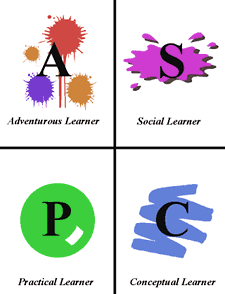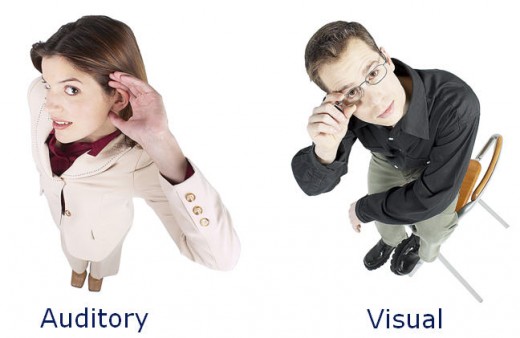Learning a Foreign Language by Knowing what Type of Learner You Are


There are many different ways that you can go about learning a new language. You can head to a foreign country where that language is spoken and immerse yourself in learning it from the inside out. You can attend a foreign language class where a teacher will take you through a series of lessons and give you feedback on how well you are learning the language. Or you can use study aids such as books and audio tapes to attempt to learn the new language on your own. The key to choosing the right method of learning a new language is to get a good grasp on your own learning style before you even begin.
What many people don't realize is that everyone learns differently. Some people can ready a book about a topic and have a really great understanding of what they've read whereas others need someone to speak the material out loud to them before it will make sense in their heads. Some people have to do things hands-on in labs before they can learn what they're studying whereas other people learn best when they are talking through something and explaining it to others. The easiest way to learn a new language is to start by figuring out what kind of learner you are.
Here are some of the basic learning types and what you would do to learn a new language if this was your primary learning type:
- Visual learners. These people learn best by reading and see the material in front of them. Working through workbooks that have a lot of pictures will assist these people in learning a language more quickly. The limitation is that it's easy to learn nouns this way (a picture of an orange goes with "orange") but not as easy to learn conversational language. You may also learn a language through watching language tapes on DVD.
- Aural learners. These are people who learn best when something is explained out loud to them. To learn a language, these people get audio cassette tapes (or CDs) and listen to them. Alternatively, these learners may attend a language class that is based primarily on lecture.
- Hands-on learners. If you learn best by doing, then you are going to need to actually speak the language in order to learn it. This may be done by taking a conversational language class in which the focus is on speaking with others in the language. It may also be done by immersing yourself in a culture that speaks the language so that you are forced to dive in and start speaking it yourself.
To start figuring out what type of learner you are, you can take tests online such as the one available here. You can also just ask yourself how you think that you learn best. You will want to approach learning a new language with this method of learning in mind. However, you shouldn't limit yourself to learning language only in this way. In order to challenge yourself, you'll also want to incorporate the other learning options into your lessons as you progress with the language. For example, an aural learner may start to learn the language by listening to CDs but may then opt to read books or take a conversational language class to go further with that education. In the end, no matter what type of learner you are, you'll have to start speaking the language in order to really get a good grasp on it.










